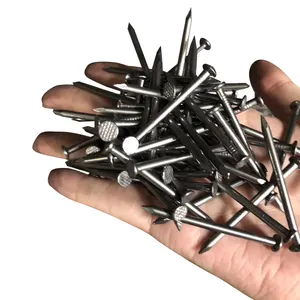Understanding Common Nails
Common nails are a fundamental component in construction and carpentry, serving as a versatile fastener for a myriad of projects. These nails are characterized by their thick shanks, flat heads, and diamond points, making them ideal for heavy-duty construction where strength and reliability are paramount. The common wire nail is a staple in the industry, designed for framing, structural paneling, and other robust applications.
Types and Specifications
Within the category of common nails, there are various sizes and types to suit specific tasks. For instance, 16d common nails are often used for framing and structural supports, while 8d common nails are suitable for general woodwork. The length and gauge of these nails are denoted by “d” which stands for penny—the larger the number, the larger the nail. A 10d nail is typically 3 inches long, making it a versatile choice for a range of applications.
Applications and Uses
The utility of common nails extends beyond simple construction tasks. 60d nails, for example, are used for heavy timber and railroad work, whereas 6d common nails are perfect for cabinet-making and light trim. For outdoor projects such as decking and fencing, the common framing nail is preferred due to its length and durability. It's important to match the nail to the task to ensure the integrity of the structure and the safety of those using it.
Material and Durability
Common nails are typically made from steel, providing the strength needed for construction. The surface may be coated or treated to resist corrosion, making them suitable for both indoor and outdoor use. For example, a 20d nail may be galvanized to prevent rust when used in environments exposed to moisture.
Advantages of Proper Selection
Choosing the right nail for the job can prevent material damage and ensure longevity. For delicate tasks, a 4d common nail with its slender shank can reduce the risk of splitting wood. Conversely, a 12d nail offers greater holding power for more demanding jobs. It is crucial to consider the weight and type of material being fastened to select the most appropriate nail.
Considerations for Purchase
When sourcing common nails, it is essential to consider the specific requirements of the project. Factors such as length, diameter, and material composition are critical. While Alibaba.com does not endorse specific products, the platform hosts a variety of suppliers offering a range of options, from a 3 common nail to a 60d nail. Buyers should assess the specifications provided by sellers to make an informed decision.












































 浙公网安备 33010002000092号
浙公网安备 33010002000092号 浙B2-20120091-4
浙B2-20120091-4